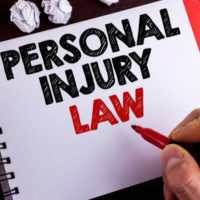Changes In Court May Make Your Case Harder To Win

In late June, the Florida Supreme Court made a significant change to the Florida Evidence Code, which is the law that governs which types of evidence are admissible at trial or not. The testimony of expert witnesses counts as ‘evidence’ in many types of trials, particularly personal injury cases like car accidents and medical malpractice, and historically, Florida courts have observed a relatively general standard for whether or not that testimony should be accepted. However, the state’s Supreme Court recently ruled that a far more strict standard should be adopted, which may cause real harm to plaintiffs whose cases are still going forward.
Daubert vs Frye
The two standards for witness testimony are referred to as the Daubert standard and the Frye standard, both named after Supreme Court cases. The Frye standard dates from the 1920s, and it is fairly straightforward: it states that if it can be proven that an expert witness’s opinion on a scientific technique is “generally accepted within the relevant scientific community,” then it can be accepted in court. So, for example, if an expert witness testifies about car accident reconstruction, how reliable it is, and how it might affect a particular case, their opinion will be admissible as evidence as long as it can be shown that most people in that field feel the same way.
The Daubert standard, by comparison, is much more specific, and much more drawn-out. In order for expert witness testimony to be usable in court under the Daubert standard, (1) it has to be based on “adequate facts or data;” (2) the evidence must be produced with reliable scientific methods and principles; and (3) the expert witness has to show that they have applied those “reliable scientific methods and principles” to the case at hand. In short, the expert’s testimony has to be relevant and valid. However, both of those terms are decidedly subjective.
What Does This Mean For Me?
Much of this sounds incredibly complex to the average person, and it may be tempting to think that it will not affect your personal injury case. However, it almost certainly will, because the crux of all the language in the opinion is that the Daubert standard will often make it much more difficult for plaintiffs to win their cases. Instead of simply showing that an expert witness is in step with the rest of their field, they must now be put through specific and rigorous questioning that can confuse or upset a jury.
Florida lawyers and bar groups have generally expressed a dislike for the Daubert standard, arguing that it is unnecessarily stringent and effectively hamstrings a certain class of plaintiffs from fully making their case because it prolongs trials (which in turn raises expenses, which can become a problem for poor and indigent plaintiffs). The Daubert standard also makes it all but impossible for experts who are trailblazers in their fields – people who have created the prevailing wisdom in a field, rather than following it – to be effective at trial, because the court will have no basis for comparison.
Call A Tampa Personal Injury Lawyer Today
While adoption of the Daubert standard makes personal injury cases more difficult to prevail on, it is by no means impossible to win your case. You need a Tampa personal injury attorney who understands the potential hazards and is willing to work with you, rather than forcing you to work with them. The Rinaldo Law Group provides knowledgeable and compassionate representation. Contact us today for a free consultation.
Resource:
law.ufl.edu/_pdf/faculty/little/topic8.pdf
